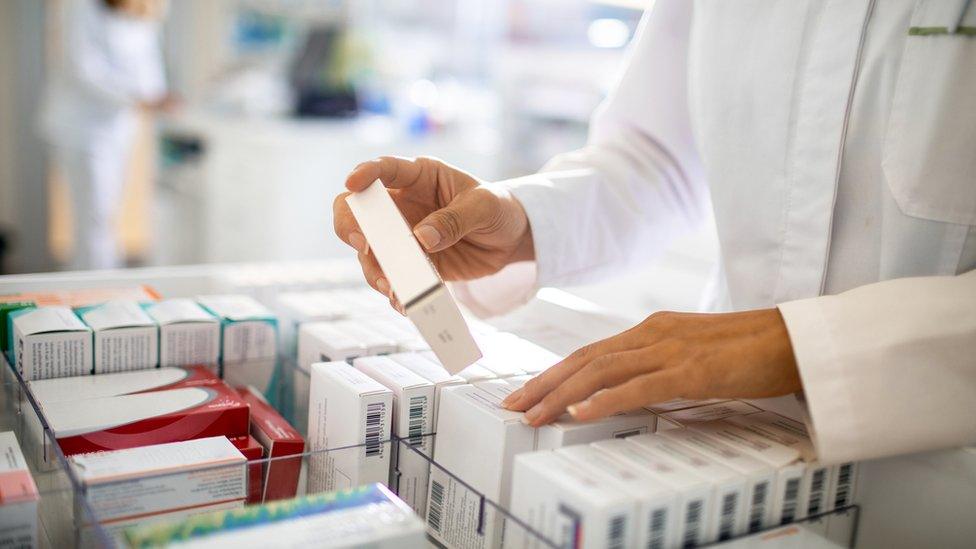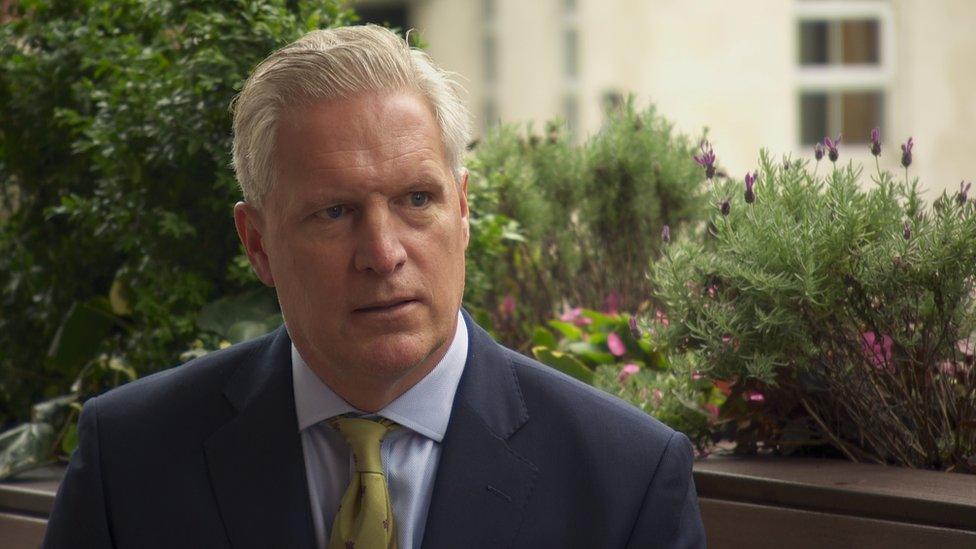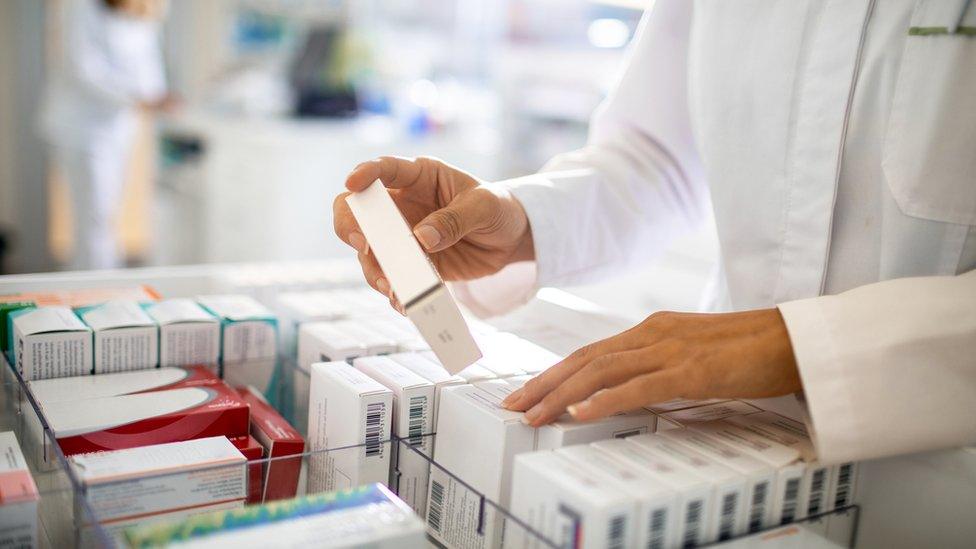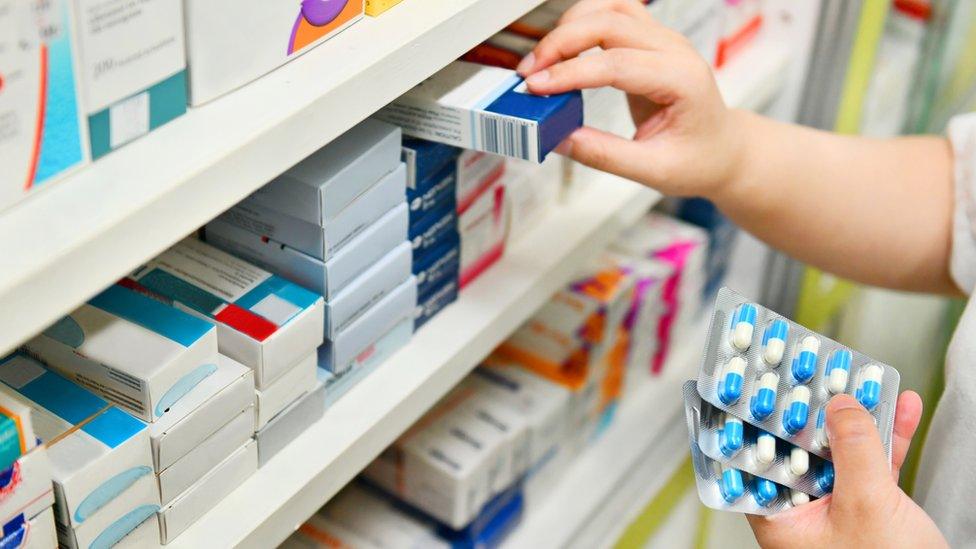Brexit: Warning over looming issues on medicines supply to NI
- Published

There are concerns some medicines could be discontinued without further agreement
EU moves to guarantee supply of medicines to Northern Ireland have so far worked but there are looming issues, peers have heard.
The British Medical Association (BMA) said "to date we have not had any issue in terms of the supply of medication".
However, the Nuffield Trust said there was the risk some medicines could be discontinued without further agreement.
That echoed earlier concerns by pharmaceutical industry representatives.
The post-Brexit deal known as the Northern Ireland Protocol means Northern Ireland is still inside the EU's pharmaceutical regulatory system.
It gets most of its medicines from Great Britain, which is not.
This emerged as one of the protocol's major difficulties, with pharmaceutical firms warning it would lead to withdrawal of products.
The EU accepted this was a problem and in April 2022 changed its laws so that medicines entering Northern Ireland from Great Britain would not need additional labelling or testing, things which would have been required by the protocol in its original form.
Dr Alan Stout of the BMA said there had been "pain and hassle" for pharmaceutical distributors but the mitigations, the derogations and negotiations had clearly worked.
"To date we have not had any issue in terms of the supply of medication, disruption to supply chains, safety issues or anything along those lines," he told a House of Lords committee.
'New cliff edge'
Kate Ling, European policy manager at the NHS Confederation, said it was "very difficult" to separate issues with global supply chains, which are affecting the whole of the UK, from issues which may be Northern Ireland-specific.
Dr Stout said the concern now was that when some of the derogations run their course there could be a new "cliff edge".

Dr Alan Stout was giving evidence to a House of Lords committee
Last week, industry representatives focused on the issue of a drugs approval process known as centralised procedures.
Essentially, it means that some medicines which were licensed pre-Brexit on a whole UK basis will be moved to a GB-only licence while Northern Ireland products will retain their original licence.
This process is supposed to be completed by the end of December.
At that point many manufacturers would consider it risky to supply the same pack to both GB and NI.
The extra cost of producing separate packs could see some products being withdrawn from Northern Ireland.
Mark Dayan, from the Nuffield Trust, said planned GB and EU divergence on centralised procedures would lead to "genuinely two different approval systems for Great Britain and Northern Ireland".
Dr Stout also raised compliance with the EU's Falsified Medicines Directive (FMD) as another significant issue.
The FMD was introduced in 2019 and is a set of rules intended to protect people from fake medicines.
But Dr Stout said its requirements were "disproportionate" to the scale of that issue in the UK and that removing Northern Ireland from the remit of the FMD would solve a "huge" number of problems.
The UK and EU are continuing to negotiate possible changes to the Northern Ireland Protocol.
The UK says that if suitable changes cannot be agreed it is prepared to act unilaterally which would be a breach of the deal.
Related topics
- Published18 January 2023

- Published12 April 2022

- Published18 September 2021
